Stanford Black Law Students Association Celebrates 50th Anniversary
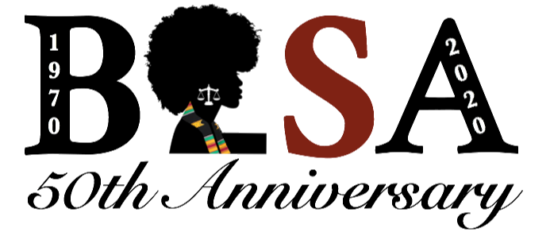
On February 1, the Stanford Black Law Students Association (BLSA) began Black History Month by celebrating its founding at the group’s 50th Anniversary Brunch and 7th Annual Black History Month Gala. Current Stanford Law School (SLS) BLSA members and BLSA alumni from every decade since its founding in 1970 came together to celebrate the ways that BLSA has shaped the experience of black students at Stanford Law School and impacted the broader black community.
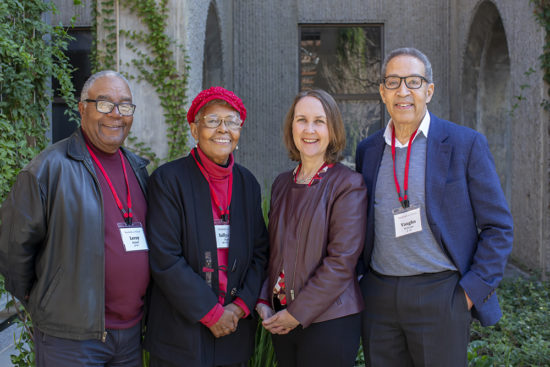
“This celebration is an opportunity to connect with the alums who made all of this possible,” said BLSA co-president Ari Andrews. “We have our first three black graduates coming back to tell their stories, as well as alums from every decade of the black experience here.”
Willard Steve Stevens, the first Stanford BLSA president, outlined the major goal of the organization in a short essay he penned for the 1970 SLS year book. The purpose of the organization was “to ensure that black law students are admitted to Stanford Law School, are given all possible assistance in achieving academic excellence, and most importantly, use their education for the benefit of the black community.”
To continue advancing these goals, Stanford BLSA hosts discussion forums and community service events to engage with underserved populations throughout the Bay Area. Most recently, Stanford BLSA announced the BLSA Award, a stipend for SLS students doing summer public interest work to further black rights, racial justice, or civil rights.
Still Progress to be Made
At the brunch with more than 50 alumni and their guests in attendance, current BLSA co-president Lisa Muloma highlighted the importance of celebration as she introduced the event’s honorees, three of Stanford Law School’s first black graduates: Sallyanne Payton ‘68, Leroy Bobbitt ‘69, and Vaughn Williams ‘69.
“As we take a look back at our history today and we celebrate and honor the firsts, we also look forward to a day when there won’t need to be so many firsts,” said Muloma. “While we still have a ways to go, we cherish the chance to come together to celebrate what black students have done here and what black people within and without Stanford Law School have achieved.”
When asked about the impact of being Stanford Law School’s first black graduate, Payton discussed how her success broke through existing stereotypes. “Back then in the 1960s, this meme of why black people and women can’t possibly be as smart as white guys kind of got exploded. It was all over in the next few years,” she said.
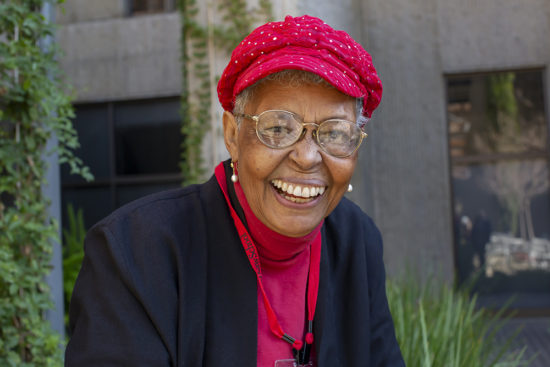
However, Payton also discussed how black law students and lawyers continue to face challenges. “Here’s the problem, it’s still there under the surface,” she said. “Don’t think that when you go to apply for something or you get up to speak about something that some of the people in that audience are trying to figure out whether it could possibly be that you’re smart enough to be doing what you’re doing.”
Similarly, Stanford Law School dean and Richard E. Lang Professor of Law Jenny Martinez highlighted the strides SLS has made in regards to both student and faculty diversity. When Stanford BLSA was founded in 1970, only two percent of students at SLS were black. However, in this year’s first-year class, more than 17 percent of students identified as black or multiracial, and more than 42 percent of students identified as a person of color.
In 1972, William B. Gould became Stanford’s first black faculty member. “It was not until 1986 that a second black faculty member, Chuck Lawrence, joined the faculty,” said Martinez. “Today we have six African-American faculty members. While these numbers are something to celebrate, we have not made nearly enough progress. It’s only by talking about these things that we will continue to move the law school forward.”
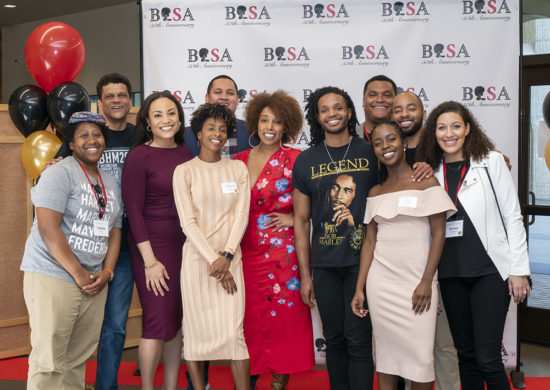
Creating Community Across Generations
Before the brunch, several BLSA students and alumni participated in a speed networking session to foster a sense of support and community. For current students, this was an opportunity to personally connect with alumni and learn from their journeys.
“We’re incredibly grateful that so many alumni took the time to celebrate and connect with students,” said Muloma. “This networking session gave students the opportunity to learn from their amazing work as trailblazers.”
Celebrating 50 in Style
Close to 400 guests attended the sold out SLS 7th Annual Black History Month Gala, including current BLSA members and more than 80 alumni and their guests.
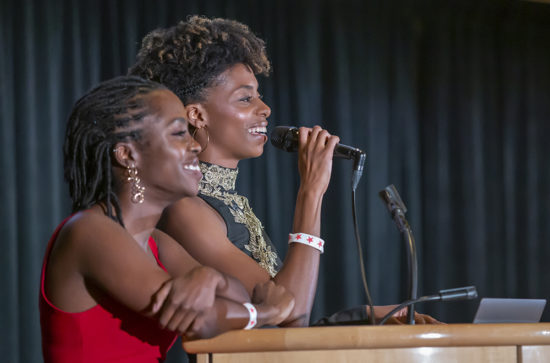
The annual gala brings together the broader community to celebrate black history and reflect on BLSA’s role in bringing about champions of racial justice. The evening opened with remarks by Muloma and Andrews, as well as with a speech by Martinez.
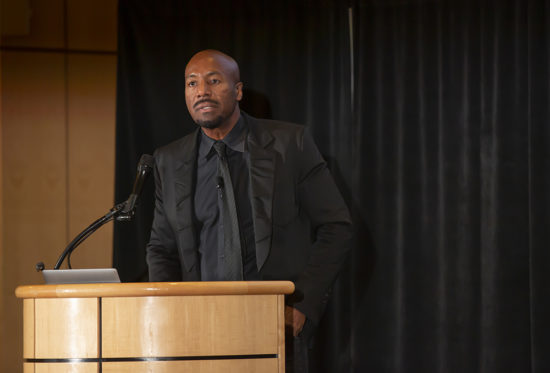
The keynote speaker of the night was Paul Butler, Professor of Law at Georgetown University. Butler is an expert in race relations law and is one of the nation’s most frequently consulted scholars on issues of race and criminal justice. He is also the author of the books “Let’s Get Free: A Hip-Hop Theory of Justice,” and “Chokehold: Policing Black Men.”
At the gala, a video premiered highlighting the important role BLSA has played at Stanford Law School and the sense of community it has created for black law students. In the video, students reflected on the importance of having a strong black community on campus and what BLSA has meant for their time at SLS.
“It’s been amazing getting together with everyone and just celebrating blackness and this accomplishment of being at Stanford Law School,” Andrews said.
About Stanford Black Law Students Association
The Stanford Black Law Students Association (BLSA) is a student-run organization that strives to provide career and academic support for students of African descent and forge alliances among BLSA members, alumni, faculty of color, and other law students in the Bay Area. We provide a space for students to engage with issues impacting black communities, both through discussion and community service. Stanford BLSA is a chapter of the National BLSA organization that includes more than 200 member law schools. All members of the Stanford community are encouraged to participate in our events.
About Stanford Law School
Stanford Law School is one of the nation’s leading institutions for legal scholarship and education. Its alumni are among the most influential decision makers in law, politics, business, and high technology. Faculty members argue before the Supreme Court, testify before Congress, produce outstanding legal scholarship and empirical analysis, and contribute regularly to the nation’s press as legal and policy experts. Stanford Law School has established a model for legal education that provides rigorous interdisciplinary training, hands-on experience, global perspective and focus on public service, spearheading a movement for change.

